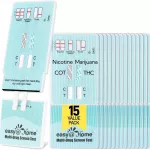Life kind of flips when your kidneys start to give up. One day you’re running errands, the next you’re tired all the time, maybe nauseous, and suddenly mapping out your week around dialysis appointments.
If you’re wondering about a kidney transplant, I bet one of the first thoughts is: how much does it cost? And honestly, it’s okay to feel overwhelmed. That number — or even trying to figure out what that number could be — can be scary.
So let’s talk about the big question on everyone’s minds:
How Much Does a Kidney Transplant Cost?
Let’s cut right through the noise. Without health insurance, a kidney transplant can set you back anywhere from $260,000 to over $442,000. That’s not pocket change — we’re talking almost the price of a house in some places. This includes things like:
- All the testing before the surgery
- The actual transplant (of course)
- Your hospital stay
- The first 6 months of meds afterward
Even after that, you’ll still need to pay for medication — the kind that keeps your body from rejecting the new kidney. Those pills alone can add up to $17,000 a year or more.
Now, if you have health insurance, it’s usually a bit easier to handle. Most plans cover a good chunk — especially with Medicare involved. But keep in mind, depending on your plan, you’re probably still paying 10% to 50% out of pocket. That means a $100,000 bill might feel like $10,000–$50,000 just sitting in front of you.
Here’s a quick breakdown:
| Service | Average Cost (USD) |
|---|---|
| Pre-transplant Evaluation | $10,000 – $30,000 |
| Surgery & Hospital Stay | $150,000 – $300,000 |
| Organ Procurement | $75,000 – $100,000 |
| Post-surgery Medications (Year 1) | $15,000 – $35,000 |
| Annual Immunosuppressive Drugs | $15,000+ |
Wait, What About My Insurance?

This is where it gets a little tricky. Let’s be real — health insurance can feel like a language no one speaks clearly unless you work at an insurance company. So here’s the quick version.
Medicare helps a lot. If you’re on dialysis or over 65, it should cover 80% of the transplant costs. Great, right? But remember — there are always gaps. Copays, deductibles, coinsurance — those pop-ups that remind you “you still owe us some money.”
Talk to your transplant coordinator early about financial counseling. Really, do it yesterday. Most hospitals have someone whose job is to guide you through this — and they know how to stretch dollars. Ask about:
- Discounts
- Payment plans
- Charitable funds like HelpHopeLive
- Potential Medicaid eligibility
Does It Matter Who Gives You the Kidney?
Oh yeah, it actually does — both emotionally and financially.
Getting a kidney from a living donor (like a family member or friend who’s a match) isn’t just faster — it’s often better. Outcomes are typically stronger and rejection rates go down. Plus, no waiting years on the national list.
But you might see a higher upfront cost — because donors also need medical tests, travel, and time off work. Total? Maybe an extra $15,000–$30,000 in some cases. Still, some say it’s worth it. Especially when you consider the peace of mind and less time dealing with dialysis schedules.
Are There Hidden Costs Too?
Wouldn’t life be nice if the bill was clear and upfront? Well, with a transplant, it rarely is. There’s a whole other side of costs most people don’t think about until they’re already spending their savings account.
- Travel back and forth to the transplant center
- Airbnb or hotel stays while you wait for surgery
- Someone to stay with you post-op, maybe even help around the house
- Lost wages during recovery
You get the idea. It’s not just paying the doctors. You’re living your life differently, in a time when comfort and care are top priority. So don’t forget to plan for all those little extras that come along with surviving something serious.
Do I Need to Go Overseas for a Cheaper Option?
Okay, so fair warning: “Cheap” kidney transplants abroad aren’t always what they seem. Sure, places like India or Iran offer procedures for way less — like $9,800 in India according to FlyMedi and $15,000 in Iran (Iran Kidney Center). Sounds amazing. Right?
Not really. Here’s why — lower price doesn’t mean safer conditions. Travel costs. Follow-up care in your home country. Restrictions that make international post-op support harder. Always, always, check accreditation (like JCI) before even considering foreign centers.
Why Is a Kidney Transplant So Darn Expensive Anyway?
Because it’s complex. And life-saving. Think of all these people working together behind the scenes to make sure everything goes smoothly:
- Your surgeon — a specialist
- Nurses
- Anesthesiologist
- Pharmacists making sure you get the right meds
- Donor coordinators
- And then there’s the actual technology behind the match
You’re not just buying a kidney. You’re getting top-tier care from multiple disciplines across weeks of medical coordination. Oh, and add in those immunosuppressants you’ll take forever — which run thousands annually — and you’ve got yourself a situation where every cent matters.
Interestingly enough, studies show that having a kidney transplant is actually cheaper over time than lifelong dialysis. Did you know each year of dialysis averages around $90,000? Over several decades, that adds up fast (data from JAMA Network Open).
What Can I Do About All This?
I wish there was an easy button here. Truth is, managing a transplant budget means sitting down with all your papers and budgets. And time. Loads of time. Start now. Ask early and document everything. Please, don’t wait until you’re ready to be listed or post-op. Set those conversations in motion today.
Questions to ask your transplant team:
- What exactly is included in my total quote?
- When do payments happen?
- Are follow-up visits and medicine bundled in?
- Are payment plans an option?
- Who else can help — social workers, charities?
Your team wants to help you succeed. They’ve seen families struggle before. And honest communication gives them the best chance to direct you toward the resources you need so that cost doesn’t become the reason someone misses out on better health.
A Final Thought
The cost of a kidney transplant is a real concern — especially if your insurance is limited. But staying informed opens doors to help you wouldn’t even think existed. From hospital payment plans to nonprofit organizations dedicated to easing the burden, there’s often someone willing to lend a hand.
While choosing low-cost care is tempting, prioritizing safety matters most. The good news? Help is available. Educated questions empower you to make confident decisions for your future self.
Remember, you’re not alone in this. There are people eager to support you. From hospital staff to fellow patients online to writer strangers like me typing this hoping to make the path a smidge lighter for someone.
























Leave a Reply
You must be logged in to post a comment.